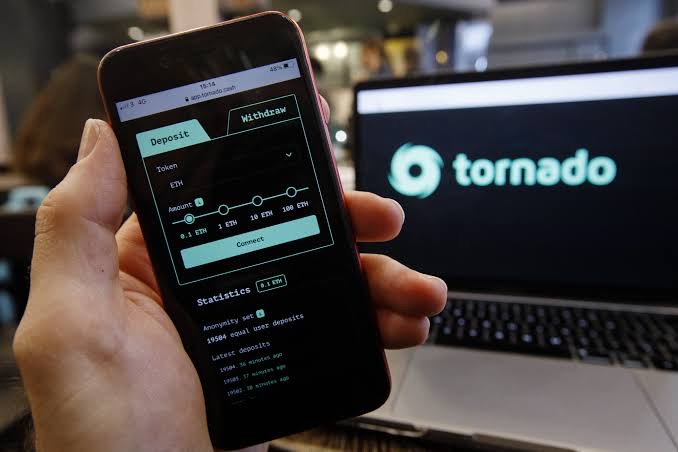Pertsev was detained by the Dutch Fiscal Information and Investigation Service (FIOD) on August 12 as a result of allegations that he used the Ethereum-based privacy technology to hide unlawful financial movements and launder money.

A rally in support of Pertsev and to defend the liberty of developers to produce open-source software was organized by the decentralized finance (DeFi) aggregator 1inch on August 20 in Amsterdam.
1inch has been particularly outspoken on the subject, claiming that Pertsev’s arrest poses a threat to “create a dangerous precedent” that might “kill the entire open-source software segment” if creators of software are held accountable for any misuse of their work by third parties.
The United States Office of Foreign Asset Control prohibited American citizens from engaging with Tornado Cash on August 8 due to growing fears that it was being used to launder money prior to the arrest. Since Pertsev founded Tornado Cash in 2019, the U.S. Treasury believes it has enabled more than $7 billion in money laundering activity.

Alexey Pertsev’s wife Ksenia Malik also blasted Dutch authorities for treating her husband like a “dangerous criminal” after his arrest last week. Alexey Pertsev is the creator of the Tornado Cash game.
According to Ksenia Malik, open-source software development should never be made a crime and that Dutch authorities are treating her husband like he is “a dangerous criminal.”
Malik expressed her gratitude to everyone who supports and helps her husband in light of 1inch’s efforts and the larger crypto community, saying that it shows that “people really care.”
Malik also believes that the event will have a good impact on people’s perceptions of open-source software by raising awareness of Pertsev’s injustice.
“We want to achieve publicity so that as many people as possible know about the arrest and the reasons for its wrongness. This is a serious issue, as every open source developer and many other people can be affected by this accusation.”
Anyone may contribute to or use the code of Tornado Cash because it is an open-source protocol. It is non-custodial, which means that neither does it retain users’ money, nor did it have administrators who could monitor user activity or halt transactions.

The encryption keys required to decipher anonymous platform transactions were burned by the platform’s creators. That doesn’t imply that, when prompted, its founders didn’t make an effort to adhere to financial regulations.
Following a particularly prominent attack carried out by the Lazarus Group, which has ties to North Korea, Tornado started working with blockchain analytics company Chainalysis in April to ban addresses designated by OFAC. But what they could actually accomplish was confined to essentially inspecting the protocol’s “front-end” webpage.
Tornado is an autonomous system, to put it another way. It simply exists and is available for use, much like an iPhone, which can be used improperly to plot heists. The decision to detain its creator is still under public scrutiny because founders shouldn’t be held guilty for users’ misuse